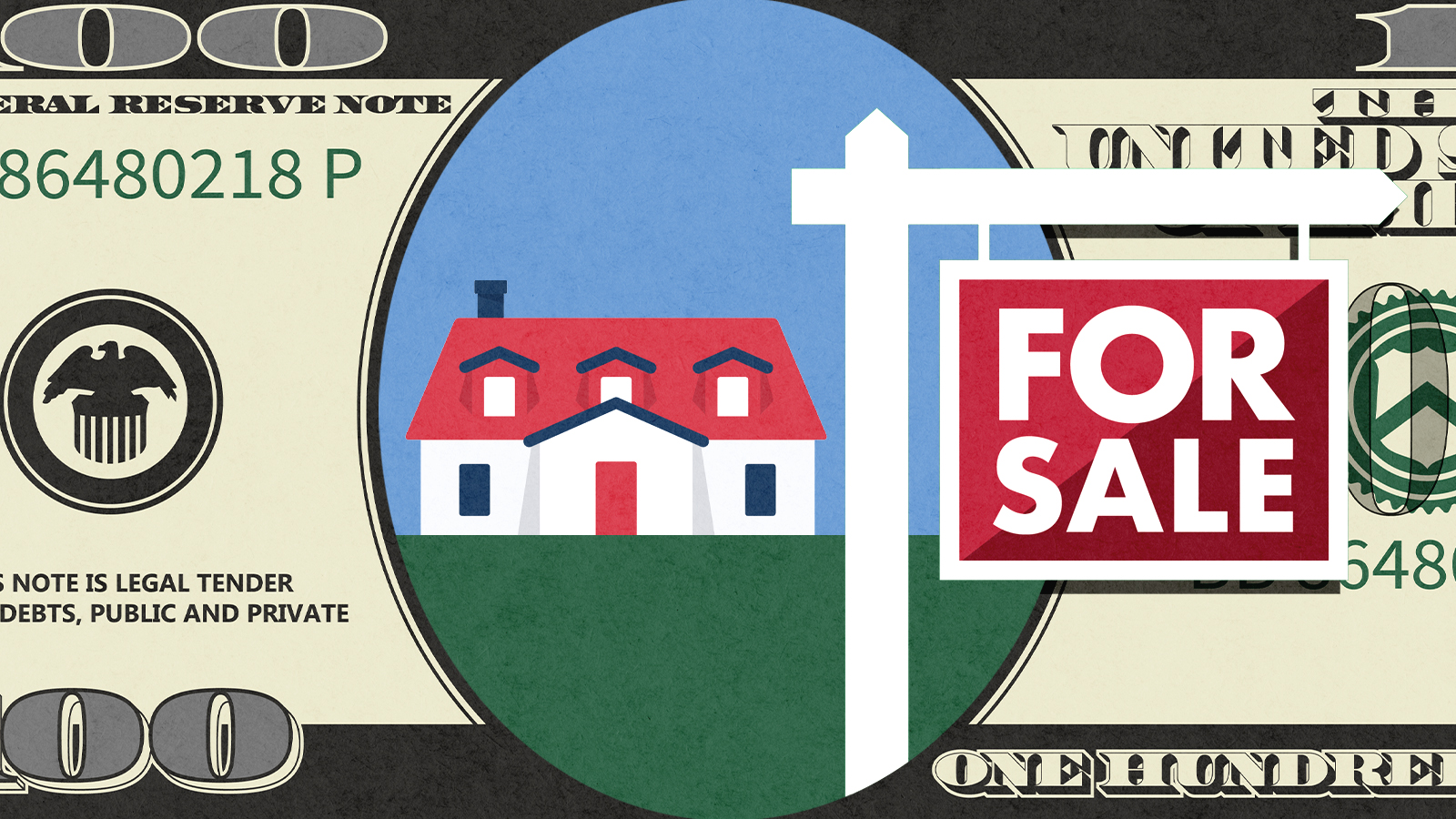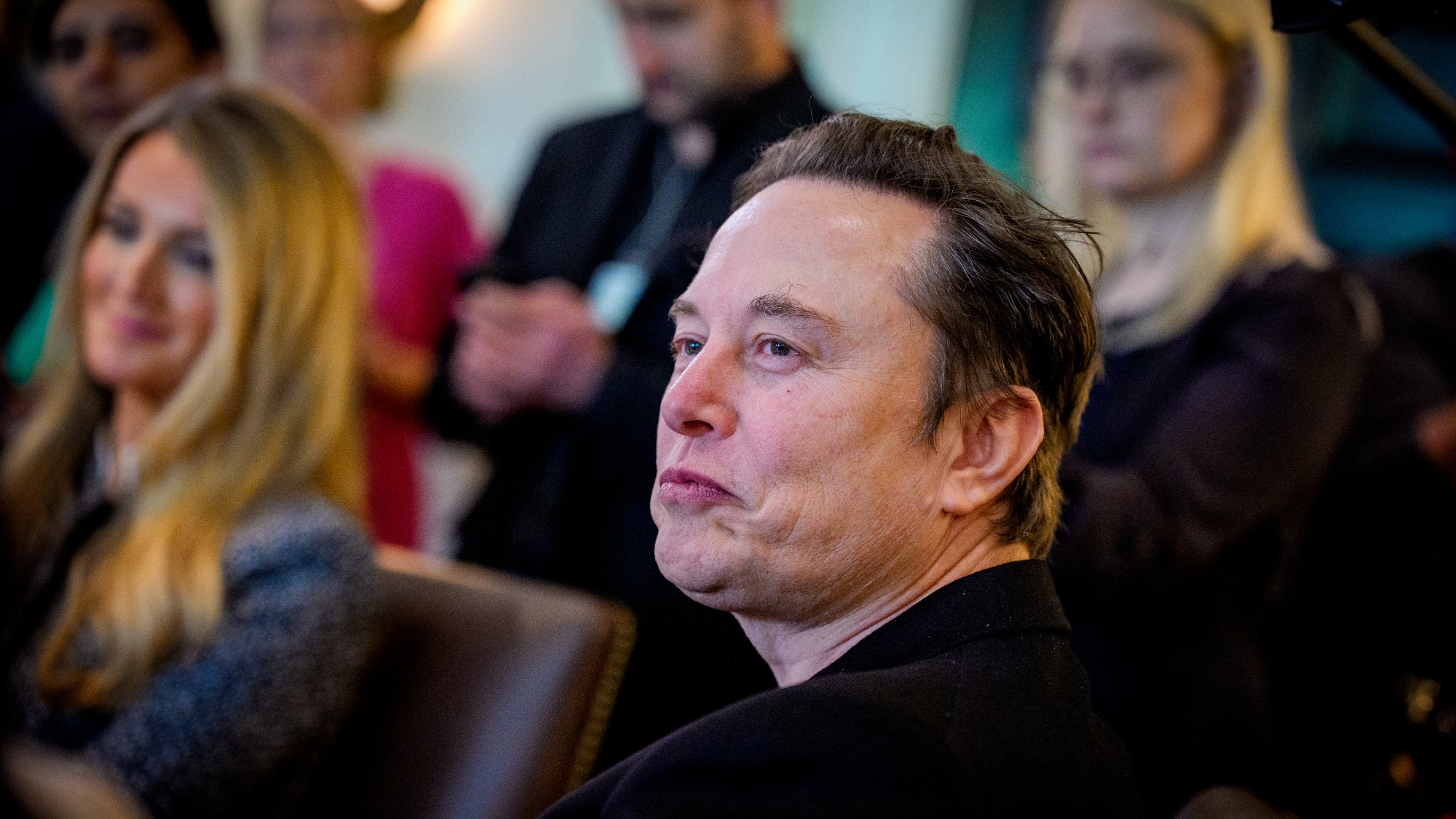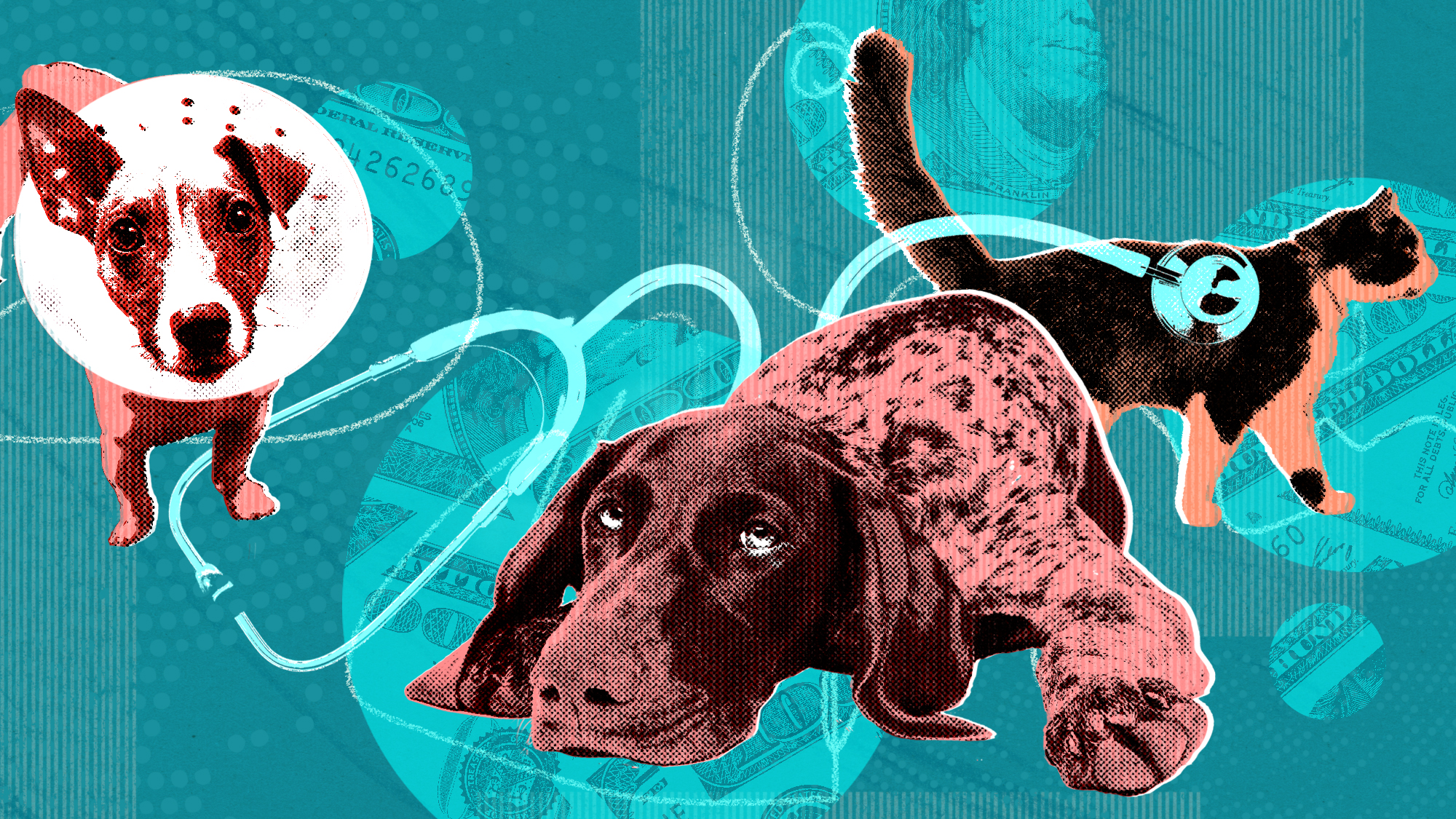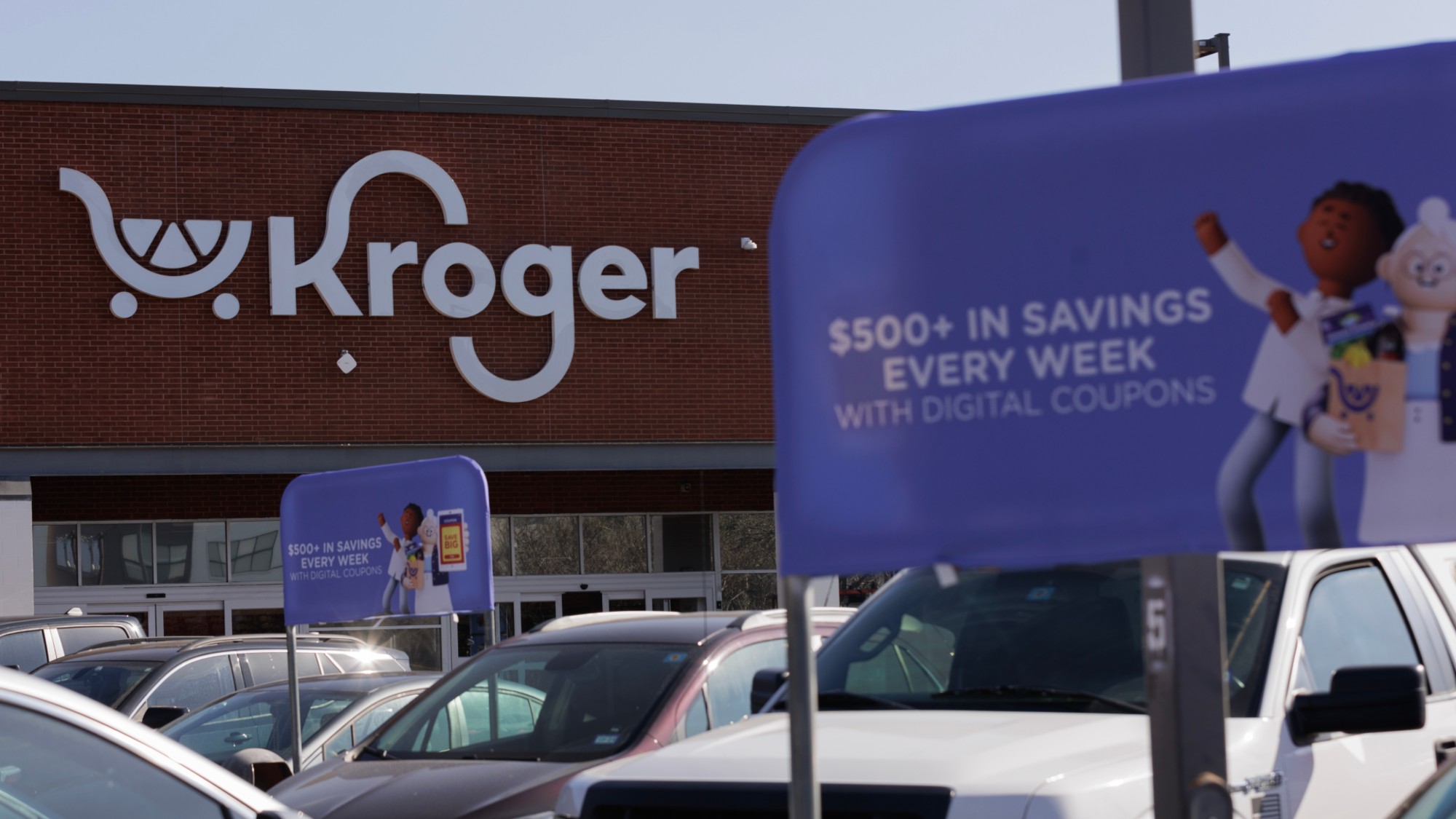Mortgages made simple
A savvy guide for aspiring homebuyers

A free daily email with the biggest news stories of the day – and the best features from TheWeek.com
You are now subscribed
Your newsletter sign-up was successful

The term "mortgage" gets thrown around a lot, but what exactly does it refer to and how does this type of loan work? Here's everything you need to know about this often critical part of the home-buying process.
What is a mortgage exactly?
Put simply, a mortgage is a loan used to buy a house (or another type of real estate) or land on which to build a property. The lender agrees to give the borrower the money needed to make the home purchase, and the borrower agrees to pay back that money over a set period of time. During this period, known as the loan's term, the borrower makes regular monthly payments on both the amount they borrowed (known as the principal) and the interest charged for taking out the loan. Other costs are often added to monthly mortgage payments, such as property taxes, homeowner's insurance, and if applicable, private mortgage insurance, explains the Consumer Finance Protection Bureau (CFPB).
If the borrower fails to make their monthly payments to the lender, they could lose their house. This is because in a mortgage, the home serves as collateral, which means the lender has the right to take possession of the home to recoup their losses if the borrower stops making payments on the loan.
The Week
Escape your echo chamber. Get the facts behind the news, plus analysis from multiple perspectives.

Sign up for The Week's Free Newsletters
From our morning news briefing to a weekly Good News Newsletter, get the best of The Week delivered directly to your inbox.
From our morning news briefing to a weekly Good News Newsletter, get the best of The Week delivered directly to your inbox.
How does a mortgage work?
Let's say you want to buy a house, but you don't have the cash to cover the full purchase price, which is often the case. That's where a mortgage can come into play. Instead, you'd offer a portion of the home's cost upfront in what's known as a down payment, and then apply for a mortgage to cover the remainder of the home's cost.
To qualify for a mortgage, you must meet the lender's requirements and go through an intensive process known as underwriting so the lender can assess their risk. "If the risk is deemed too high, an underwriter may refuse coverage," explains Investopedia. But if you're approved, you will agree to certain terms, including the interest rate you'll pay on the money borrowed and how long you'll have to pay back the loan.
Each month, when you make a payment on the mortgage, a portion of your payment will go toward the principal, reducing how much you still owe, and another part will go toward covering interest charges. Over time, the amount of your payment that goes toward the principal versus interest will shift: At first, when your loan's balance is high, more of your payment will go toward paying interest. But as you chip away at your loan balance, "you owe much less interest, and most of your payment goes to pay off the last of the principal," explains the CFPB.
Are there different types of mortgages?
Yes. A few common types of mortgages you might encounter include:
A free daily email with the biggest news stories of the day – and the best features from TheWeek.com
Conventional loans: Per the CFPB, "'conventional' just means that the loan is not part of a government program." Most mortgages fall under this category. These loans can have steeper requirements compared to other types of mortgages, which can make them more difficult to get.
FHA loans: FHA loans, on the other hand, can be easier to get because they have lower credit score requirements. Additionally, they allow for smaller down payments. The downside is they tend to cost more than conventional mortgages. FHA loans are backed by the Federal Housing Administration (FHA), which is a government agency.
Special program loans: There are a number of different types of special program mortgage loans, though these loans are only available to those who meet eligibility guidelines. There are VA loans intended for veterans, servicemembers, or surviving spouses, and USDA loans for borrowers in rural areas who meet income requirements. Additionally, there are state and local programs that target first-time homebuyers, public service employees, and low- and middle-income borrowers.
The length of a loan term, or how much time lenders give you to pay back the money you've borrowed, can also vary. Typically, loan terms are 15 years or 30 years. "Shorter terms will generally save you money overall, but have higher monthly payments," explains the CFPB.
Another key mortgage option is the interest rate type. Interest rates for mortgages are either fixed or adjustable. A fixed rate, as the name suggests, means the interest rate does not change over the loan term. However, fixed rate mortgages generally have higher interest rates than adjustable rate mortgages. But with an adjustable rate, you'll face the uncertainty of your interest rate fluctuating based on market conditions.
This article is in part based on information first published on The Week's sister site, Kiplinger.com
-
 What to know before filing your own taxes for the first time
What to know before filing your own taxes for the first timethe explainer Tackle this financial milestone with confidence
-
 The biggest box office flops of the 21st century
The biggest box office flops of the 21st centuryin depth Unnecessary remakes and turgid, expensive CGI-fests highlight this list of these most notorious box-office losers
-
 The 10 most infamous abductions in modern history
The 10 most infamous abductions in modern historyin depth The taking of Savannah Guthrie’s mother, Nancy, is the latest in a long string of high-profile kidnappings
-
 Trump wants a weaker dollar, but economists aren’t so sure
Trump wants a weaker dollar, but economists aren’t so sureTalking Points A weaker dollar can make imports more expensive but also boost gold
-
 The longevity economy booms as people live longer
The longevity economy booms as people live longerThe Explainer The sector is projected to reach $27 trillion by 2030
-
 Texas is trying to become America’s next financial hub
Texas is trying to become America’s next financial hubIn the Spotlight The Lone Star State could soon have three major stock exchanges
-
 How could worsening consumer sentiment affect the economy?
How could worsening consumer sentiment affect the economy?Today’s Big Question Sentiment dropped this month to a near-record low
-
 Musk wins $1 trillion Tesla pay package
Musk wins $1 trillion Tesla pay packageSpeed Read The package would expand his stake in the company to 25%
-
 From candy to costumes, inflation is spooking consumers on Halloween this year
From candy to costumes, inflation is spooking consumers on Halloween this yearIn the Spotlight Both candy and costumes have jumped significantly in price
-
 Rising costs are making it harder for people to afford pets
Rising costs are making it harder for people to afford petsUnder the Radar Shelters are filling up as a result
-
 Grocery stores under fire for overcharging during cost-of-living crisis
Grocery stores under fire for overcharging during cost-of-living crisisThe Explainer A recent investigation has put the spotlight on Kroger, but it is not the only chain being pinpointed